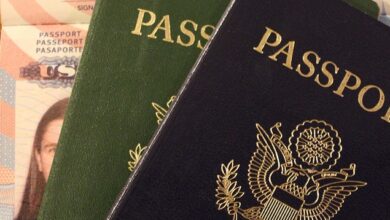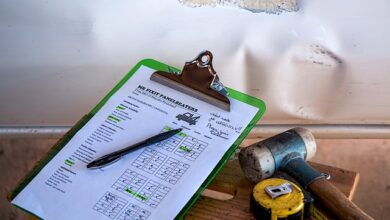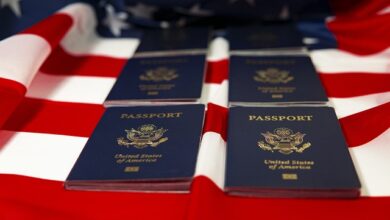How to Apply for Dutch Citizenship: A Step-by-Step Guide

Becoming a citizen of the Netherlands is an exciting and life-changing decision. Dutch citizenship grants you numerous benefits, including the right to live, work, and vote in the country, as well as access to its world-class healthcare and education systems. However, the process can be complex, with specific requirements and steps that must be followed carefully. Here’s a comprehensive guide on how to apply for Dutch citizenship.
1. Understand the Eligibility Requirements
Before starting the application process, ensure you meet the eligibility criteria for Dutch citizenship. The most common pathways include:
A. Naturalization (Indiening van een Verzoek tot Naturalisatie)
This is the most common method for foreigners to obtain Dutch citizenship. To qualify, you must:
- Have legally resided in the Netherlands for at least 5 consecutive years (or 3 years if married to or in a registered partnership with a Dutch citizen).
- Hold a valid residence permit.
- Be able to speak, read, and write Dutch at level A2 or higher (proven through exams like the Inburgeringsexamen).
- Demonstrate sufficient knowledge of Dutch society and culture (also part of the Inburgeringsexamen).
- Have no criminal record or pending legal issues.
- Show integration into Dutch society by having social ties, employment, or other forms of involvement.
B. Option Procedure (Optieprocedure)
This route applies to individuals who have a direct connection to the Netherlands, such as:
- Being born in the Netherlands and holding a permanent residence permit.
- Having at least one Dutch parent or being adopted by Dutch parents.
- Being married to or in a registered partnership with a Dutch citizen for over 3 years.
C. Declaration of Allegiance (Verklaring van Wil)
This option is available to certain groups, such as:
- Refugees who cannot renounce their original nationality due to political reasons.
- Stateless individuals residing in the Netherlands.
2. Prepare Required Documents
Gather all necessary documents to support your application. These typically include:
- Proof of identity (valid passport or ID card).
- Birth certificate (translated into Dutch if not issued in English, French, or German).
- Marriage or partnership certificate (if applicable).
- Proof of legal residence in the Netherlands (e.g., residence permit).
- Certificate of good conduct (VOG – Verklaring Omtrent Gedrag).
- Proof of passing the civic integration exam (Inburgeringsexamen).
Ensure all documents are up-to-date and officially translated if needed.
3. Pass the Civic Integration Exam
The Inburgeringsexamen is mandatory for most applicants. It consists of two parts:
- Language Proficiency : Demonstrating Dutch language skills at level A2.
- Knowledge of Dutch Society : Understanding Dutch history, politics, laws, and cultural norms.
You can take preparation courses offered by local municipalities or private institutions. Once ready, schedule your exam through DUO (Dienst Uitvoering Onderwijs).
4. Submit Your Application
Once you’ve met the requirements, it’s time to submit your application. Follow these steps:
A. Complete the Application Form
Download and fill out the appropriate form from the IND (Immigratie- en Naturalisatiedienst) website. Choose between:
- Formule 1 – Naturalization Request for standard naturalization.
- Formule 2 – Option Procedure for those eligible under special circumstances.
B. Pay the Fee
There is a non-refundable fee for processing your application, which varies depending on your situation. As of 2023, the fee for naturalization is approximately €945. Payment methods will be specified on the IND website.
C. Send Your Documents
Submit your completed form, supporting documents, and payment confirmation to the IND via post or online upload, depending on the instructions provided.
5. Attend the Naturalization Ceremony
If your application is approved, you’ll be invited to attend a naturalization ceremony organized by your municipality. During this event:
- You’ll take an oath or affirmation of allegiance to the Kingdom of the Netherlands.
- Receive your official certificate of Dutch citizenship.
Attendance is mandatory; failure to participate may delay or cancel your citizenship grant.
6. Renounce Your Original Nationality (If Required)
The Netherlands generally allows dual citizenship, but some countries require you to renounce your original nationality upon acquiring another. Check your home country’s laws regarding dual citizenship and proceed accordingly.
7. Enjoy Your New Rights and Responsibilities
As a Dutch citizen, you’ll enjoy several privileges, including:
- Voting in national elections.
- Access to a Dutch passport, allowing visa-free travel to many countries. Certain responsibilities also come with citizenship, such as obeying Dutch laws and contributing to society.
Tips for a Smooth Application Process
- Start Early : The process can take several months, so begin preparing well in advance.
- Stay Organized : Keep copies of all submitted documents and correspondence with the IND.
- Seek Professional Help : If unsure about any step, consult an immigration lawyer or advisor specializing in Dutch citizenship.
- Stay Updated : Immigration policies may change, so regularly check the IND website for updates.



